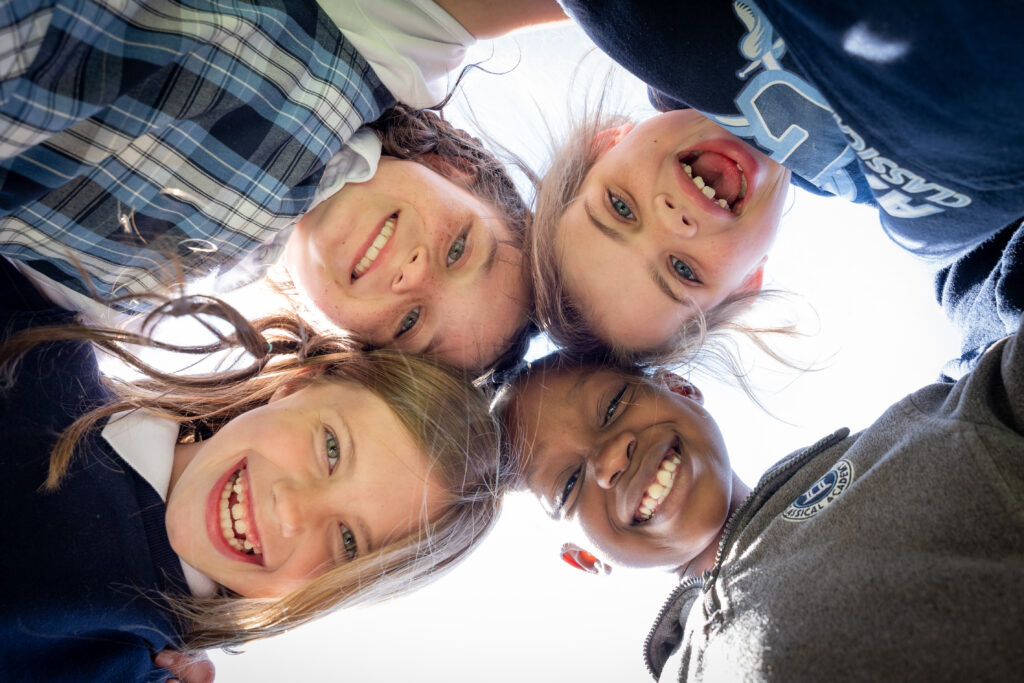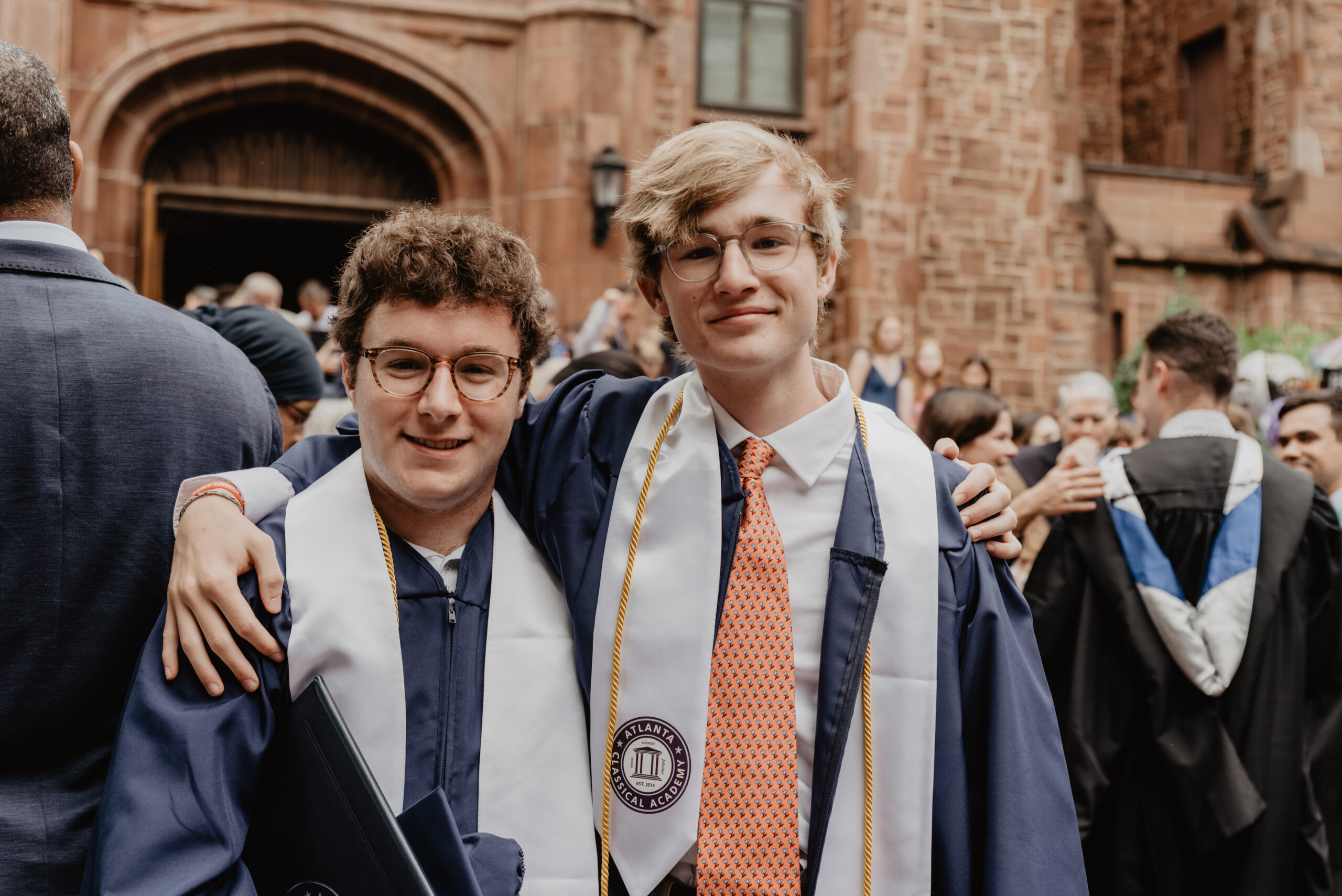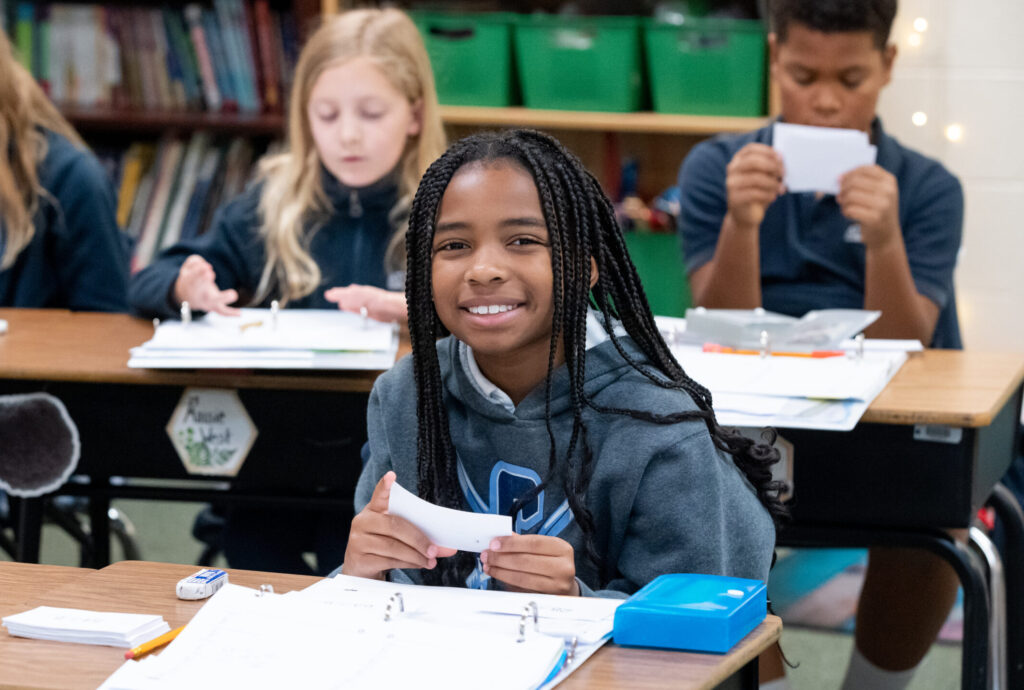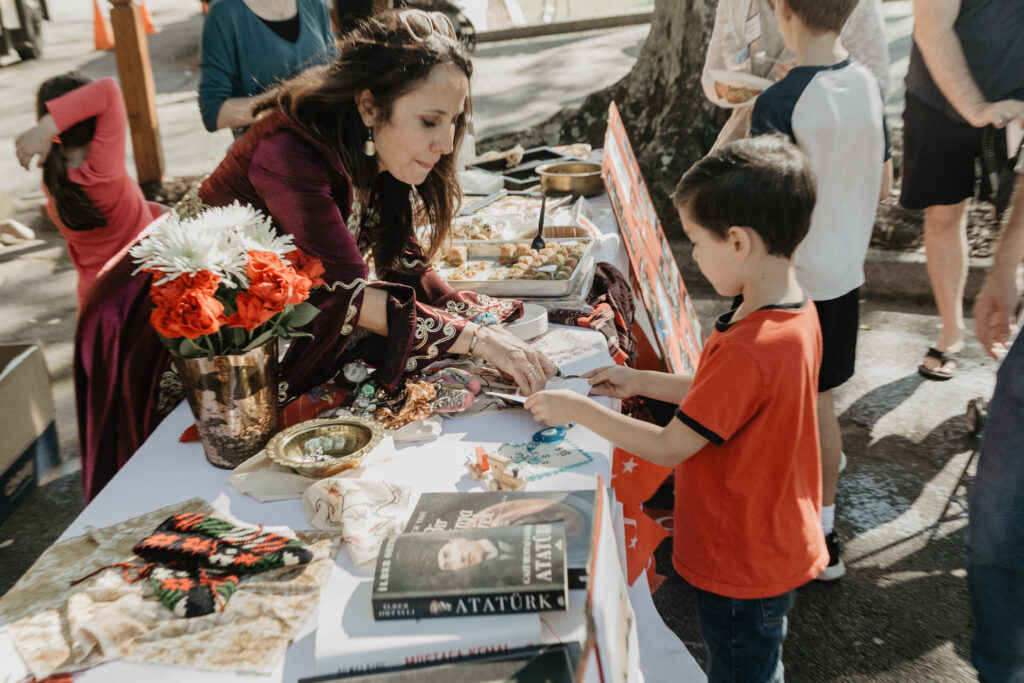Classical Education & Philosophy

What is Classical Education?
Classical education attends to a young person’s heart and mind by leading them toward moral and intellectual virtue. It offers students the accumulated wisdom of the “best which has been thought and said,” and liberates them to learn what is true, do what is good, and love what is beautiful. By teaching students to cultivate virtue, classical education leads them toward lives of freedom and moral responsibility. Students learn to govern themselves and acknowledge their duty to their families, their city, and their country.
Academically, a classical education encompasses:
- A curriculum that is content-rich, balanced, and inter-connected across the four core disciplines of math, science, literature, and history
- Explicit instruction in phonics and grammar
- An approach to instruction that acknowledges objective standards of correctness, logic, beauty, weightiness, and truth
- A well-educated and articulate faculty who care deeply for their students and teach through excellent questions
- A school culture of moral virtue, decorum, respect, discipline, and studiousness among both students and faculty
- A three-phased conception of the trajectory of an education – known traditionally at the trivium – that consists of a progression from grammar through logic to rhetoric within each subject
- A study of order in the natural world built fundamentally upon the four sciences of the quadrivium: arithmetic, geometry, astronomy, and music
- A belief that math and sciences are more than job preparation and give students a language for understanding the order of the universe
- A love of great books and a belief that stories and conversations about them change us as human beings
- An ultimate aim of preparing students for lives of human flourishing

How To Describe Classical Education
Teachers, parents, and students often find themselves in a position to describe classical education to a friend or family member asking about it. These are seven ways one might start a conversation about classical education:
We study the “best which has been thought and said in human history” – beginning mainly with Western Civilization.
We do not claim to cover the entirety of all the best things, but anything we put in front of our students should be from the category – or class – of what is best (and therefore what is most engaged with what is most human about us). We think these excellent things might help students be both happier and more virtuous.
While some schools say that they are teaching their students “how to think,” we aspire to go beyond this by teaching our students what to love.
We hope an education at ACA orders the affections of our students such that they can identify what is good and beautiful and even more so that they love what is good and beautiful. We think we can actually know and say that some things are good and beautiful and other things are not.
We have many things we think students ought to know, not simply a set of skills we want them to acquire.
We see wisdom, not skill development, as the ultimate end of an education. So, in our mission, rather than promise that students will become competitive members of a global economy (as the Common Core’s mission does), we make the much more humane statement that we are trying to form knowledgeable, virtuous citizens.
We teach through questions and treat all subjects as languages.
Because words are the fundamental building block of all human thought, we order our education to fit that. We talk about teaching in every course as making students better “readers” within that subject. As they become better readers, students grow in their ability to understand how parts of problems and texts fit together in order to make meaning of the whole. This leads us to focus on a “confederation” of the disciplines in how we structure course and graduation requirements – meaning that we seek to show alignment across subjects.
We elevate virtues rather than values.
Virtues are objective things that have been traditionally important and can be measured by a standard; values are subjective and ever-changing. The content of a classical education emphasizes virtues, and the result should be increasingly virtuous students.
We aspire for our students to be prepared to live lives of liberty, but we have a specific view of what liberty entails.
Rather than unfettered choice, we imagine liberty to be a combination of freedom and responsibility, with a special emphasis on the latter. To accord with this classical view of liberty, we build the culture of our school around and orient the content of our classes toward conveying the duties and limits of a life well lived.
We de-emphasize technology on campus.
This may seem like a luddite idiosyncrasy, but it corresponds to our wider conviction that a curriculum should not be constantly trying to adapt to external forces. It takes thirteen years’ worth of close, uninhibited (by screens) attention even to start wrapping one’s mind around the best of what has been thought and said in human history. There is a war for our attention, and we think the greatest books of our civilization deserve it the most.






